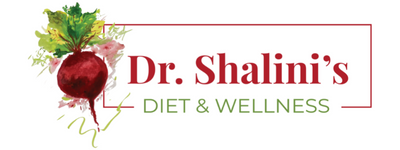Staying Healthy & Losing Weight during Ramadan – 10 Tips
The Holy month of Ramadan has begun. Fasting during Ramadan may improve your health, but only if done in the proper manner. If you are not careful, food eaten during the pre-dawn ( Suhoor) and dusk meals ( Iftar) can cause some weight gain instead of weight loss and probably problems like dehydration, headache, dizziness, bloating, acidity, constipation etc. You also need to be very careful if you suffer from Diabetes, High Blood Pressure, Heart ailments & Kidney disorders.
Feasting during the non-fasting hours can be unhealthy. Its recommended to approach the fast with discipline,to lose few kilos and keep fit & healthy. The underlying message behind Ramadan is self-discipline and self-control. This should not fall apart at the end of the day.
TEN TIPS For Staying Healthy & Losing Weight during Ramadan
1. With the long fasting hours, hydration is the key for a healthy Ramadan. Dehydration leads to headaches, irritability, and fatigue. Besides plenty of water, coconut water, lassi, chaas, herbal teas, etc pack your morning and evening meals with fruits and veggies for extra hydration.
2.It is very important to watch your sodium intake at this time as high sodium can cause greater dehydration. Avoid eating and drinking that makes you more thirsty like salty foods like soups, sauces, condiments, canned meats, sodas, coffee and tea.
3. Breaking the fast (Iftar) with whole fruits and vegetables, lean proteins, healthy fats, and whole grains which can stabilize your blood sugar , kill hunger and prevent overeating . Filling up on heavy fried foods, fatty meats, and sweets may contribute to excessive fatigue and weight gain during Ramadan.
4.Always modify portion sizes during Ramadan meals . Instead of putting out a large plate, opt for a smaller plate and cut back the amount of meat that you use, and replace it with vegetables.
5.Avoid fried foods,fast foods and heavy oil items which can cause heartburn and other problems for you all day. Its wise to eat natural than processed.
6.Make sure during the day you do very light activities like walking, house cleaning , light yoga etc. Go for high intensity workouts only at night since you can drink all the water you need at that time
7.Start the Day Right! Suhoor is expected to provide you with the energy you need for the entire day. Eating protein keeps you full for hours. Complex carbohydrates provide fibre and are a great energy source to sustain you throughout the day until Iftar. They are filling, easily digestible, and can be prepared in a variety of ways. So combine lean protein , complex carbohydrates with a healthy fat for a balanced meal.To keep hydrated during the day it is imperative to have fluids at this time too.
8.To get the most benefit from your foods, it is important to make sure you cook them in a healthy way. Avoiding cooking methods that require lots of added fat is a great way to decrease the number of calories and improve the overall quality of your diet. Try baking , grilling or shallow pan frying instead of deep frying.
9. If you suffer from Diabetes,Hypertension,Kidney disorders,heart ailments,liver diseases, etc do consult a doctor before commencement of the fast. Also, your medication would have to be prescribed accordingly.
10. A change in routine during Ramadan, could lead to constipation. To avoid this, enrich your diet with fibre by eating vegetables, fruits, whole grains and legumes. Drink plenty of water during non fasting hours and try to be active whenever possible.
Dr.Shalini Singhal


